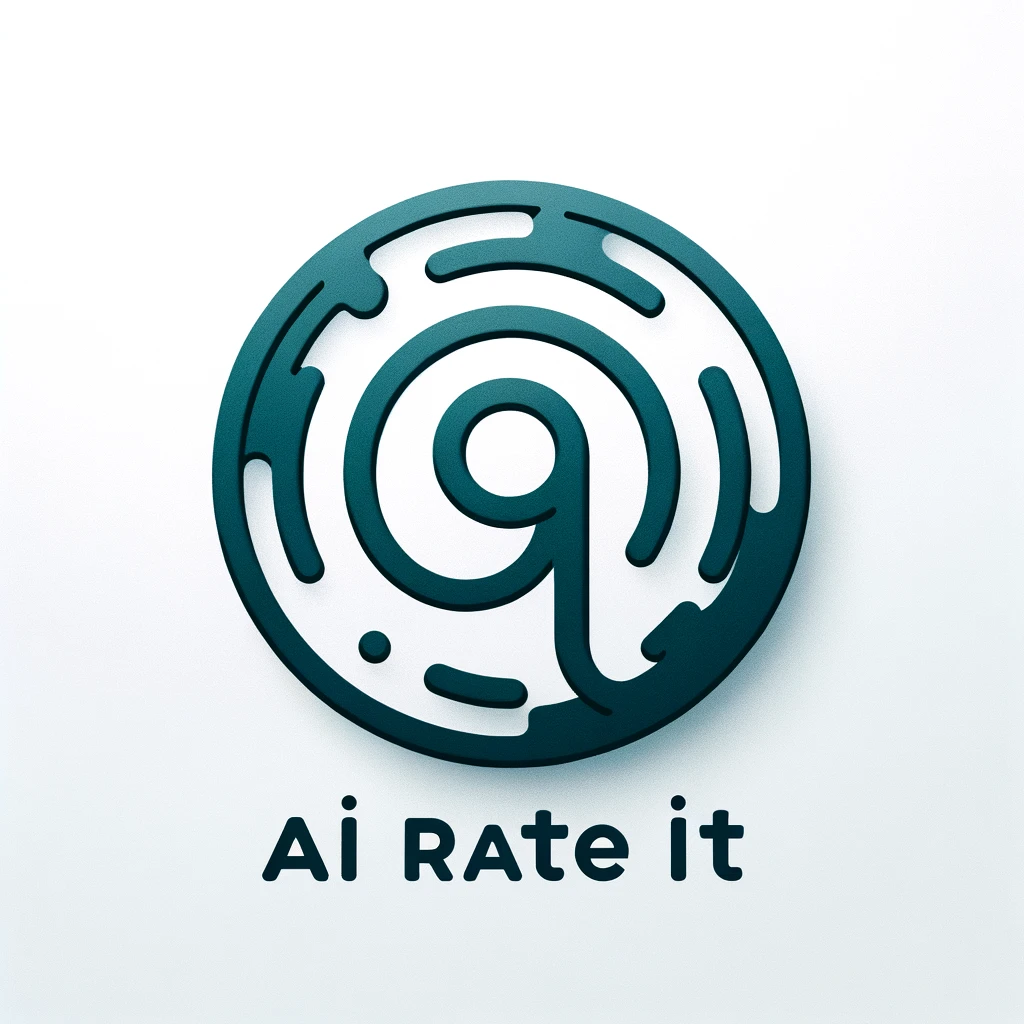Are you looking to optimize your advertising campaigns and drive more targeted traffic to your business? Look no further than AI-driven tools for keyword research in advertising. These powerful and innovative tools take the guesswork out of finding the most effective keywords for your ads, helping you reach your ideal audience with precision and efficiency. By harnessing the capabilities of artificial intelligence, these tools analyze vast amounts of data to uncover relevant keywords, search trends, and competitive insights. Say goodbye to manual keyword research and hello to a smarter, more effective advertising strategy.
AI-driven Tools for Keyword Research in Advertising
Keyword research is a crucial aspect of advertising, as it helps businesses identify the most relevant and valuable keywords to target in their advertising campaigns. With the advancements in artificial intelligence (AI) technology, there are now powerful AI-driven tools available that can greatly aid in keyword research for advertising purposes. These tools leverage AI algorithms and machine learning techniques to provide valuable insights and suggestions for identifying the best keywords to target. In this article, we will explore the benefits of using AI-driven tools for keyword research in advertising and discuss some popular options available in the market.
What is Keyword Research in Advertising?
Before diving into the benefits of AI-driven tools for keyword research, let’s first understand what keyword research in advertising actually entails. Keyword research involves the process of identifying and analyzing the keywords or phrases that potential customers are using when searching for products, services, or information online. This research helps businesses understand the search landscape and determine which keywords to target in their advertising campaigns.
The goal of keyword research in advertising is to find the keywords that have high search volume, low competition, and high relevance to the business’s offerings. By targeting these keywords effectively, businesses can improve their visibility in search engine results pages (SERPs) and increase the likelihood of attracting relevant and qualified traffic to their websites.
Benefits of AI-driven Tools for Keyword Research
AI-driven tools have revolutionized the way keyword research is conducted in advertising. These tools offer several benefits that can significantly enhance the effectiveness and efficiency of keyword research. Let’s explore some of the key advantages:
-
Enhanced Keyword Suggestions: AI-driven tools employ sophisticated algorithms to generate highly relevant keyword suggestions based on user input. These suggestions can help businesses discover new keywords that they may not have considered otherwise, expanding their keyword opportunities and improving their targeting capabilities.
-
Competitor Analysis: AI-powered tools can analyze competitors’ websites and advertising campaigns to identify the keywords they are targeting. This competitive intelligence can be invaluable for businesses, as it allows them to understand their competitors’ keyword strategies and make informed decisions about their own keyword targeting.
-
Search Volume and Trends: AI-driven tools can provide accurate and up-to-date information on keyword search volume and trends. This data enables businesses to identify keywords with high search volume, ensuring that they are targeting keywords that are popular and in-demand among their target audience.
-
Keyword Difficulty Analysis: AI tools can assess the difficulty of ranking for specific keywords by analyzing factors such as competition, search volume, and domain authority. This analysis helps businesses determine the competitiveness of keywords and prioritize their efforts accordingly.
-
Long-Tail Keyword Generation: AI-driven tools excel at generating long-tail keywords, which are longer and more specific keyword phrases. Long-tail keywords often have lower competition and higher conversion rates, making them valuable for advertising campaigns. AI tools can identify long-tail keyword opportunities that businesses may have overlooked, helping them optimize their keyword targeting strategy.
-
Language and Localization: AI tools can take into account language and localization factors to provide keyword suggestions that are tailored to specific regions and languages. This ensures that businesses are targeting keywords that are relevant to their target audience in different geographical locations.
-
Keyword Filtering and Sorting: AI-powered tools offer advanced filtering and sorting capabilities, allowing businesses to narrow down their keyword choices based on different criteria. This feature helps businesses efficiently analyze and manage large sets of keywords, saving time and effort.
-
Ad Group and Campaign Planning: AI-driven tools can assist in organizing keywords into logical ad groups and campaigns, making the process of structuring and managing advertising campaigns more streamlined and effective. This feature helps businesses improve the relevance and performance of their ads by grouping keywords according to their similarities and targeting specific ad groups with tailored messaging.
Popular AI-driven Tools for Keyword Research in Advertising
Now that we have explored the benefits of AI-driven tools for keyword research, let’s take a look at some popular options available in the market:
-
Google Ads Keyword Planner: Google Ads Keyword Planner is a free tool that allows businesses to research keywords directly within the Google Ads platform. It provides valuable insights into keyword search volume, competition, and trends, making it a popular choice for keyword research.
-
SEMrush: SEMrush is a comprehensive SEO and digital marketing tool that offers robust keyword research capabilities. It provides detailed keyword analysis, including search volume, competition level, keyword trends, and more. SEMrush also offers competitor analysis features that allow businesses to gain insights into their competitors’ keyword strategies.
-
Ahrefs: Ahrefs is a popular SEO tool that offers powerful keyword research functionalities. It provides comprehensive keyword analysis, backlink analysis, and competitor analysis features. Ahrefs’ keyword explorer tool helps businesses identify relevant keywords and assess their ranking difficulty.
-
Moz Keyword Explorer: Moz Keyword Explorer is another widely used tool for keyword research. It offers detailed keyword suggestions, search volume data, and difficulty scores to help businesses identify the most valuable keywords. Moz also provides insights into the competitive landscape, enabling businesses to differentiate themselves in their advertising campaigns.
-
SpyFu: SpyFu is a competitive intelligence tool that focuses on uncovering competitors’ keyword strategies. It provides valuable insights into which keywords competitors are targeting, their ad copy, and their organic search rankings. This information can help businesses refine their own keyword targeting and gain a competitive advantage.
-
KWFinder: KWFinder is a user-friendly keyword research tool that offers an intuitive interface and powerful keyword analysis capabilities. It provides valuable insights into keyword search volume, difficulty, and trends. KWFinder also offers a feature called “Autocomplete,” which suggests long-tail keyword ideas based on user input.
-
Long Tail Pro: Long Tail Pro is a keyword research tool that specializes in generating long-tail keyword suggestions. It offers in-depth keyword analysis, including search volume, keyword competition, and profitability potential. Long Tail Pro helps businesses identify niche keywords that have less competition and higher conversion rates.
-
WordStream: WordStream is a comprehensive digital advertising platform that offers powerful keyword research features. It provides keyword suggestions, search volume data, and competitive analysis tools. WordStream also offers unique features like negative keyword discovery and integrated campaign management, making it a valuable tool for businesses.
How AI-driven Tools Aid Keyword Research in Advertising
Now that we have explored popular AI-driven tools for keyword research, let’s delve into how these tools aid in the keyword research process:
-
Enhanced Keyword Suggestions: AI-driven tools leverage advanced algorithms and machine learning techniques to generate highly relevant keyword suggestions based on user input. These suggestions help businesses identify new keyword opportunities and expand their keyword targeting.
-
Competitor Analysis: AI tools can analyze competitors’ websites and advertising campaigns to uncover the keywords they are targeting. This competitive intelligence allows businesses to understand their competitors’ keyword strategies and make informed decisions about their own keyword targeting.
-
Search Volume and Trends: AI-driven tools provide accurate and real-time data on keyword search volume and trends. This information helps businesses identify popular keywords that have high search volume, ensuring that their advertising efforts are focused on keywords that are in-demand among their target audience.
-
Keyword Difficulty Analysis: AI tools assess the difficulty of ranking for specific keywords by analyzing factors such as competition, search volume, and domain authority. This analysis helps businesses understand the competitiveness of keywords and prioritize their efforts accordingly.
-
Long-Tail Keyword Generation: AI-powered tools excel at generating long-tail keywords, which are longer and more specific keyword phrases. These keywords often have lower competition and higher conversion rates. AI tools identify long-tail keyword opportunities that businesses may have overlooked, helping them optimize their keyword targeting strategy.
-
Language and Localization: AI-driven tools take into account language and localization factors to provide keyword suggestions that are tailored to specific regions and languages. This ensures businesses are targeting keywords that are relevant to their target audience in different geographical locations.
-
Keyword Filtering and Sorting: AI-powered tools offer advanced filtering and sorting capabilities, allowing businesses to efficiently analyze and manage large sets of keywords. This feature helps businesses save time and effort by narrowing down their keyword choices based on various criteria.
-
Ad Group and Campaign Planning: AI tools aid in organizing keywords into logical ad groups and campaigns, streamlining the process of structuring and managing advertising campaigns. This feature helps businesses improve the relevance and performance of their ads by grouping keywords according to their similarities and targeting specific ad groups with tailored messaging.

Limitations of AI-driven Tools for Keyword Research
While AI-driven tools offer numerous benefits for keyword research, it’s important to acknowledge some limitations:
-
Contextual Understanding: AI tools may lack the ability to fully understand the context and nuances of a specific industry, making it essential for businesses to manually assess the relevance and appropriateness of the suggested keywords.
-
Domain-Specific Knowledge: AI tools may not possess domain-specific knowledge, limiting their ability to suggest keywords that are specific to certain industries or niches. Businesses may need to supplement AI-generated suggestions with their own industry knowledge.
-
Data Accuracy: While AI tools strive to provide accurate keyword data, there may still be instances of discrepancies or inaccuracies in the data. It’s important for businesses to validate and cross-reference the data provided by AI tools before making critical decisions.
-
Cost and Complexity: Some AI-driven tools require a subscription or payment for access to advanced features or larger data sets. Additionally, due to the complexity of the algorithms and features, there may be a learning curve associated with using these tools effectively.
-
Limited Language Support: AI tools may have limitations in supporting certain languages or dialects, which can impact their effectiveness for businesses targeting diverse language markets.
Despite these limitations, AI-driven tools remain valuable assets in the keyword research process, offering unique insights and automation capabilities that can greatly enhance the effectiveness and efficiency of advertising campaigns.
How to Choose the Right AI-driven Tool for Keyword Research
With a plethora of AI-driven tools available in the market, choosing the right one for keyword research can be overwhelming. Here are some factors to consider when selecting an AI-driven tool:
-
Features and Functionality: Assess the features and functionality offered by each tool. Consider whether the tool aligns with your specific keyword research needs and whether it offers other functionalities that may be valuable for your advertising campaigns.
-
Accuracy and Data Quality: Look for tools that provide accurate and reliable keyword data. Research customer reviews and testimonials to gauge the quality of the data provided by each tool.
-
Ease of Use: Consider the user interface and workflow of the tool. Look for a tool that is intuitive, user-friendly, and offers a smooth user experience. A complex tool may require a longer learning curve and may not be suitable for businesses seeking quick and efficient keyword research.
-
Cost and Value for Money: Understand the pricing structure of each tool and evaluate whether the features and benefits provided justify the cost. Consider whether the tool offers a free trial or a money-back guarantee to help you assess its value.
-
Customer Support: Evaluate the level of customer support provided by the tool’s developer or company. Consider whether they offer timely and effective support through various channels, such as live chat, email, or phone.
-
Integration with Other Tools: If you use other digital marketing or advertising tools, consider whether the AI-driven keyword research tool integrates seamlessly with your existing tools. Integration can help streamline workflows and enhance overall efficiency.
By considering these factors, you can make an informed decision and choose an AI-driven tool that best matches your business’s needs, budget, and goals.

Conclusion
AI-driven tools have revolutionized the keyword research process in advertising, offering powerful capabilities that enhance efficiency, accuracy, and effectiveness. These tools provide valuable insights, generate keyword suggestions, offer competitive analysis, and streamline campaign planning. While there are limitations to AI-driven tools, their benefits outweigh the drawbacks. By selecting the right AI-driven tool for keyword research and combining it with human expertise and business knowledge, businesses can create targeted and impactful advertising campaigns that maximize their reach, visibility, and conversions.





